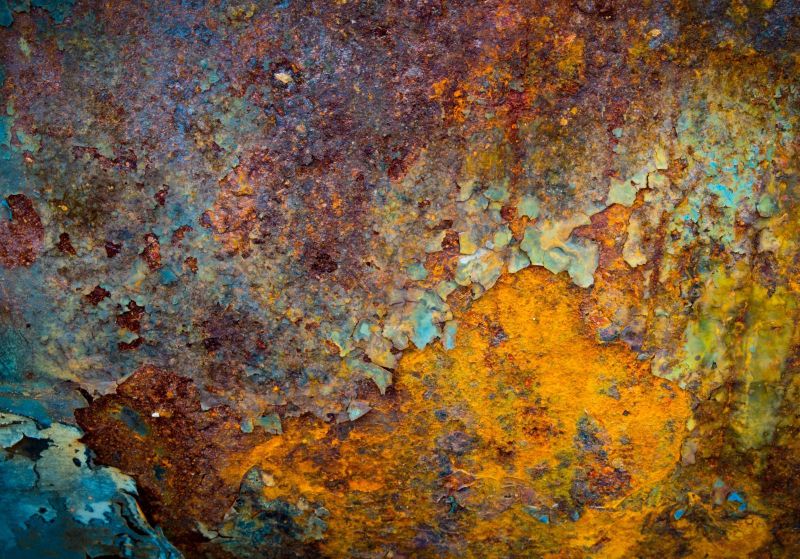Corrosion is a common problem that can occur inside your home. It is the gradual breakdown of materials due to chemical reactions with the environment. Corrosion can cause damage to your home's plumbing, appliances, and other metal surfaces, leading to costly repairs or replacements. Fortunately, there are several steps you can take to prevent corrosion from occurring inside your home. In this blog post, we will explore some tips on how to prevent corrosion inside your home.
- Control Humidity Levels
One of the main causes of corrosion inside homes is high humidity levels. Moisture in the air can cause metal surfaces to corrode, especially in areas with poor ventilation. To prevent this, it is essential to control the humidity levels in your home. You can do this by using dehumidifiers in damp areas such as basements, crawl spaces, and bathrooms. Regularly checking and maintaining your home's ventilation system can also help keep humidity levels under control.
- Properly Ventilated
Proper ventilation is essential to prevent corrosion inside your home. Without proper ventilation, moisture can accumulate, leading to the formation of rust and other types of corrosion. Make sure that all rooms in your home, especially areas such as bathrooms and kitchens, are properly ventilated. This can be done by installing fans or opening windows to promote air circulation and prevent the buildup of moisture.
- Regularly Check for Leaks
Leaky pipes and faucets can cause corrosion to occur inside your home. Water leaks can cause metal pipes and fixtures to corrode, leading to damage and potential failure. Regularly checking for leaks in your home's plumbing system can help prevent corrosion from occurring. If you notice any leaks, it is essential to address them promptly by repairing or replacing the affected pipes or fixtures.
- Maintain Appliances and HVAC Systems
Appliances and HVAC systems can also be a source of corrosion inside your home. Regular maintenance of these systems can help prevent corrosion from occurring. For example, cleaning your refrigerator's coils can help prevent the buildup of rust and other types of corrosion. Similarly, regular maintenance of your HVAC system can help prevent moisture buildup and prevent corrosion of metal surfaces.
- Use Corrosion-Resistant Materials
Using corrosion-resistant materials can help prevent corrosion from occurring inside your home. For example, using PVC pipes instead of metal pipes can help prevent corrosion in your home's plumbing system. Similarly, using stainless steel appliances and fixtures can help prevent corrosion in areas such as kitchens and bathrooms.
- Properly Store Chemicals and Cleaning Products
Chemicals and cleaning products can also contribute to corrosion inside your home. It is essential to properly store these products to prevent them from causing corrosion. Keep them in a cool, dry place, away from metal surfaces. Also, make sure to properly dispose of any old or expired products to prevent chemical reactions that can cause corrosion.
- Regularly Clean and Maintain Surfaces
Regularly cleaning and maintaining surfaces can also help prevent corrosion from occurring inside your home. Dust, dirt, and other debris can trap moisture, leading to corrosion. Regularly cleaning surfaces such as metal fixtures, appliances, and pipes can help prevent this. Additionally, regularly checking for signs of corrosion and addressing them promptly can help prevent further damage and potential failure.
- Install Surge Protectors
Surges in electrical current can cause corrosion in electronics and other electrical components. Installing surge protectors in your home can help protect against these surges and prevent corrosion from occurring. Surge protectors can be installed at the main electrical panel, as well as on individual electronic devices and appliances.
- Monitor and Control pH Levels
The pH level of your water can also contribute to corrosion in your home's plumbing system. Water with a low pH level is acidic and can cause corrosion in metal pipes and fixtures. Regularly monitoring and controlling the pH levels of your water can help prevent corrosion from occurring. You can do this by testing your water and using treatments to adjust the pH level if necessary.
- Address Pest Infestations
Pests such as termites and rodents can also contribute to corrosion inside your home. These pests can cause damage to wooden structures and wiring, leading to corrosion of metal surfaces. Regularly inspecting your home for signs of pest infestations and addressing them promptly can help prevent corrosion from occurring.
Preventing corrosion inside your home requires taking a proactive approach to maintenance and prevention. By controlling humidity levels, properly ventilating, regularly checking for leaks, maintaining appliances and HVAC systems, using corrosion-resistant materials, properly storing chemicals and cleaning products, regularly cleaning and maintaining surfaces, installing surge protectors, monitoring and controlling pH levels, and addressing pest infestations, you can help prevent corrosion from occurring and avoid costly repairs or replacements in the future. Remember to address any signs of corrosion promptly to prevent further damage and potential failure.

